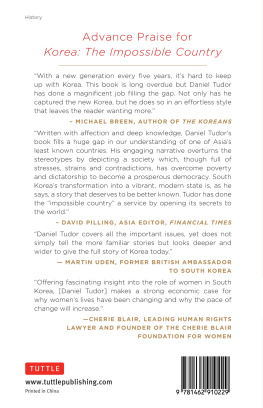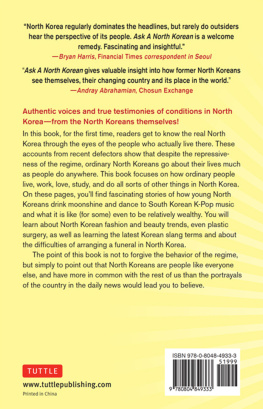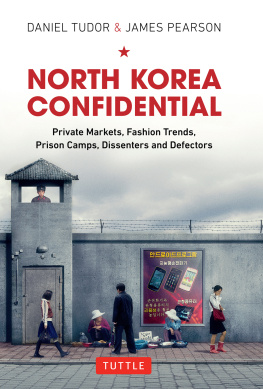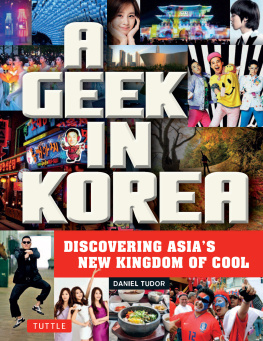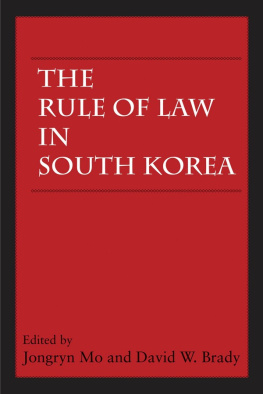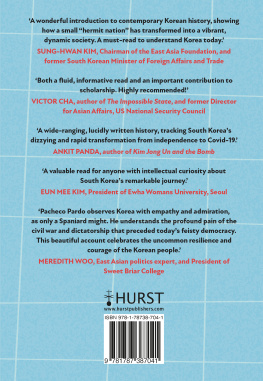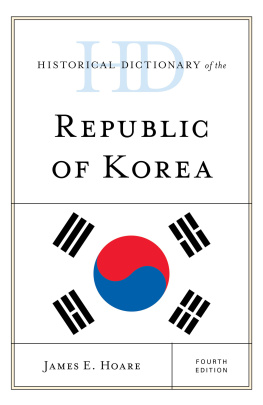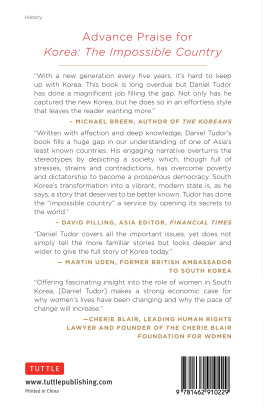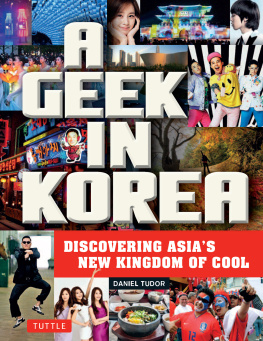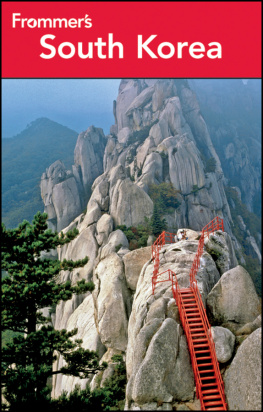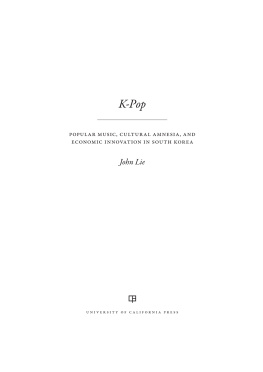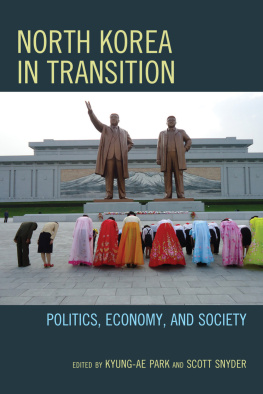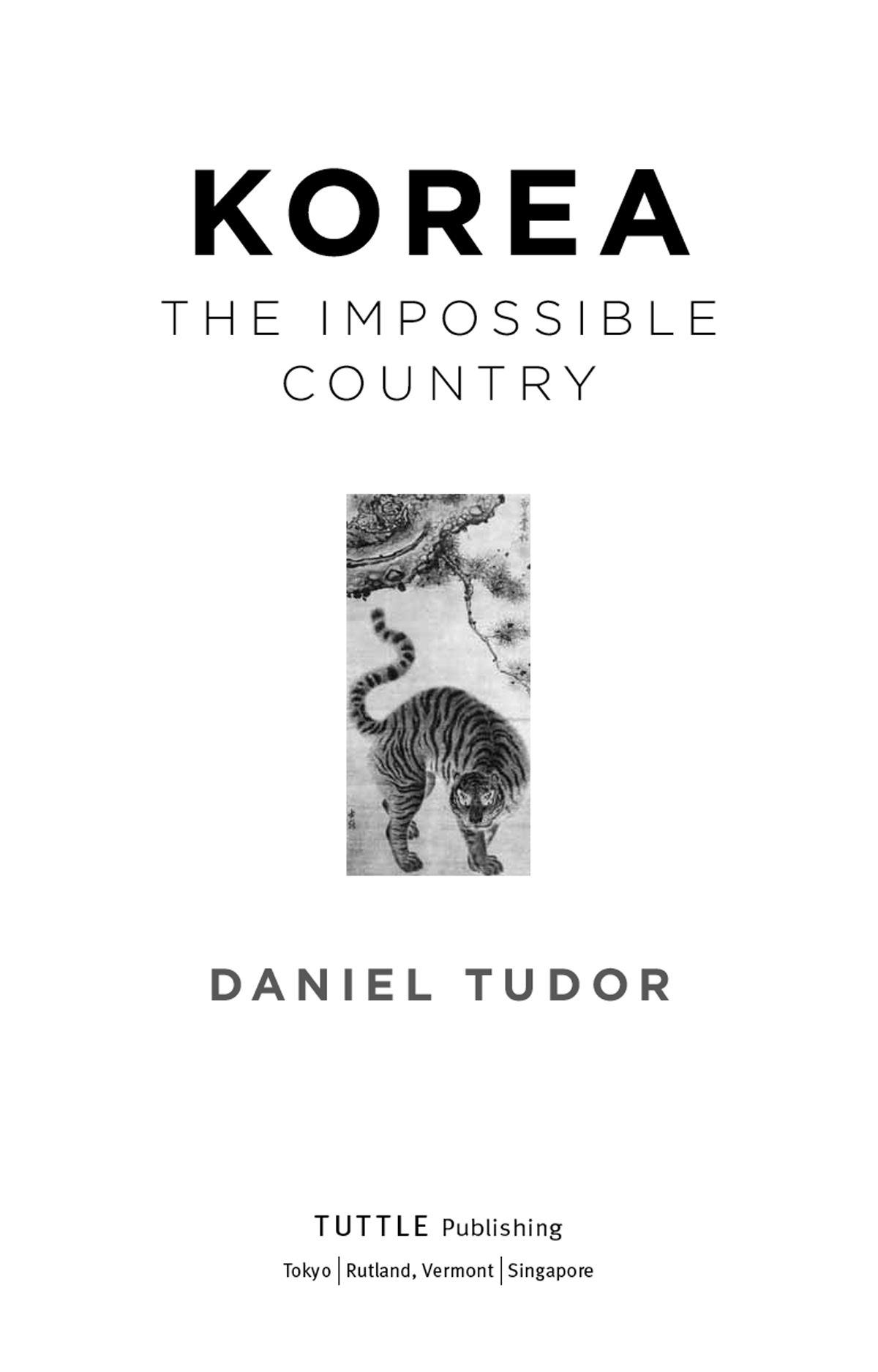

Chapter 1
Shamanism and the Spirit World
Primary colors blur as she spins repeatedly, entranced and led on by clanging cymbals and the insistent beat of drums. She sings and dances as a means of communicating with the spirit world. She enters into what appears to be a trance, speaking with the voice of the departed. This is her gift, and her curseto be a musok-in , a Korean shaman. The ceremony she is performing, the gut , lasts all day long and may serve to calm malign spirits, purify the soul of the recently deceased, or ask the gods for a good harvest or success in a business venture. She is part of a tradition that stretches back forty thousand years and has its origins in Siberia. Musok , or shamanism, has been practiced on the Korean peninsula for far longer than the concept of Korea, the country, has existed.
Though Musok is ancient and seems remote from the South Korea of todaya wealthy, technologically advanced, and increasingly globalized countryit is woven into the fabric of Korean society and still exerts an influence over the most rational of city folk.
What is Korean Shamanism, and How Popular Is It?
Musok is a set of disparate religious or superstitious practices based in the belief of a natural world animated by spirits, and aimed at bridging between those spirits and living human beings. Usually, a believer will turn to Musok in order to produce some sort of benefitgood fortune or the removal of evil spiritsor to learn something about his or her destiny. Practitioners may follow a great many different gods and spirits, and the way these are followed depends on a number of factors, including the practitioners personality and the region she comes from. According to the musok-in Hyun-ju (her working name), who has practiced Musok for over twenty years for a large variety of clients, at the heart of Musok is simply a belief in nature. As she explains, everything in naturebe it a person, an animal, a tree, or even a rock has a spirit. Musok offers a way of communicating with those spirits, and possibly using them for some earthly benefit.
Since each musok-in follows different gods and spirits, there is a pantheon in only a very loose sense. Researchers have documented more than ten thousand gods worshipped by Musok practitioners, and, in reality, there are likely to be many more. Individual musok-in have their own principal godsHyun-jus is an ancient Chinese monk. There have been those who have followed Jesus Christ; and, after his daring Incheon landing during the Korean War, some even worshipped General Douglas MacArthur.
Similarly, since there is no overarching set of rules and no bible or orthodoxy, ceremonies that have formalized rituals involving dances, songs, and incantationssuch as the Seoul danggut, which calls for a good harvestare recognized and transmitted on a regional or town level. Musok-in learn those that apply to their home regions. In addition, according to Hyun-ju, musok-in often find it hard to collaborate since they each believe their gods are the best. While each musok-in is guided to some extent by millennia of shamanic tradition, specific traditions vary by region. Furthermore, much depends on who the novice learned from, the god she follows, and her own individual character.
Musok is very practical, as it is used as way of solving peoples problems via communication with the spirit world. The musok-in is a go-between, mediating between ordinary Koreans and this other world, linking the person seeking advice or an understanding of their future or remediation of some sort with the spirits that can provide it. Hyun-ju, for instance, tells this author to avoid the color blue and, more specifically, not to buy a blue car at the age of thirty-four, based on the advice of spirits. But she does not impart the sort of moral counsel a pastor or priest might, for instance. There is no Musok Ten Commandments. (Hyun-ju does have her own personal rules, however, such as the need to refrain from lying and thoughtless speech. Her chosen name means Be careful with your words.)
Followers do not describe themselves as adherents of Musok . In Korea, one simply visits a musok-in for advice with a big decision or dilemma, or when faced with illness or tragedy. Those who go for counsel are not typically aware of the specific character of the gods followed by the musok-in or the meaning of the rituals employed. They approach the musok-in in the way a Westerner may approach a psychiatrist: as a consultant, as and when required.
Musok is considered femininea legacy of Korean history and not simply due to the fact that most practitioners are women. During the Joseon dynasty (13921897), neo-Confucianism was the state ideology. This philosophical tradition was paternalistic and encouraged the marginalization of women in public life. Concerned with rationalism and the promotion of an orderly society, neo-Confucians considered Musok emotional and metaphysical and conflated it with the feminine, which may in fact have coincided with a tradition of shamans being mainly women. Consequently, they suppressed it, and relegated musok-in to the lowest social class, the cheonmin . Even so, practitioners continued to receive business from customers of all kinds, from humble farmers to royalty. In an era of male-dominated, non-spiritual formality, people demanded an outlet for the opposite side of their characterand Musok provided that. Queen Min of the late Joseon period herself employed two musok-in as advisors.
In the modern era, despite the advent of scientific rationalism and the rapid growth of Christianity in Korea, Musok has flourished. The New York Times reports there to be around 300,000 musok-in working in contemporary Korea. Many are drawn to the practice by the fact that it has become a very profitable business. A sought-after musok-in who pushes expensive ceremonies on her clients can become wealthy. Some are able to advertise in major newspapers, employ several apprentices and assistants, and buy multiple properties. The fact that millions of Koreans are prepared to pay for this sort of spiritual counsel does, of course, encourage fakes and frauds. This, according to Hyun-ju, has set the Musok world at war with itself. A real musok-in is not rich, she says.
The Making of a Musok-in
The process of becoming a musok-in can start in one of two ways. The first is seseupmu , the inheritance of shaman status from ones family, with an older relative conferring the status on a younger one. Of such musok-in , there are two types, both traditionally found south of the Han River: shimbang and tangol . Shimbang are not considered to be in direct contact with spirits, but they have the ability to draw spirits into communion with others. A tangol may not believe in a particular god as her guide. Neither will maintain a personal shrine.
The second type of initiation, gangshinmu , occurs with no such hereditary connection. It begins with a kind of spiritual sickness known as a shinbyeong . The shinbyeong manifests itself in a variety of symptoms, such as loss of energy, hallucinations, the hearing of voices, and insomnia, which indicate that the woman who is stricken by them is possessed of the ability to communicate with spirits. This ability is considered a curse rather than a blessingbut it is also a matter of destiny: Hyun-ju states that she would not be a musok-in if she felt she had a choice. Her life is lonely, she says, and at least for her, incompatible with having a family. She remains unmarried and laments that she expects no one to turn up to her funeral, a consequence of peoples superstition about the presence of hostile spirits at a musok-ins wake and her lack of a family.
Next page
